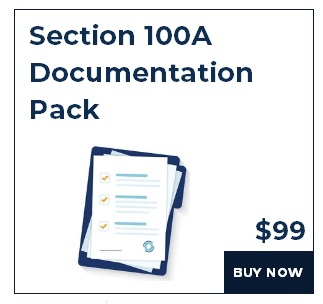
News
Recognition as Leading Law Firm
Birchstone Tax Law has been included in the 2020 Doyle’s Guide list of Leading Western Australian Tax Law Firms. Additionally, one of our directors, Daniel Taborsky, has been included in the list of Leading Western Australia Tax Lawyers and one of our senior associates, Shivani Jethwa, has been included in the list of Tax Law Rising Stars in Australia.
These lists detail firms and lawyers who have been identified by clients and peers for their expertise in the area. Being less than 2 years old, this is a fantastic recognition for our growing team!
Family Trust Elections
On 18 November 2020 at 11am AWST, Birchstone Tax Law will be running a free webinar on family trust elections. To find out more details and register, click here.
ATO Updates
Decision Impact Statement released: Dual residents under DTA
The ATO issued a Decision Impact Statement on the Full Federal Court’s decision in FCT v Pike[2020] FCAFC 158. The case considered whether an individual was a ‘resident’ of Australia for the purposes of subsection 6(1) of the ITAA 1936 and the application of the ‘tiebreaker’ test in the double-tax agreement between Australia and Thailand.
State Taxes
Northern Territory, South Australia and Tasmania State Budgets handed down: Further payroll tax relief
The Northern Territory Government released its 2020-21 Budget Papers which includes payroll tax waiversfor March 2020 to April 2021 returns and an extension of payroll tax deferral until 21 May 2021.
The Government of South Australia handed down its 2020-21 State Budget. The Budget includes payroll tax relief measures such as a 6-month payroll tax waiver for eligible businesses, extended repayment instalment options for employers who have deferred payroll tax liabilities and a 12-month payroll tax exemption for wages paid to eligible new apprentices and trainees.
The Tasmanian Government handed down its 2020-21 Budget which includes the extension of the Payroll Tax Rebate Scheme and Small Business Grant schemes and the extension of payroll tax rebates for all youth employees.
Victoria: Draft ruling on valuation evidence of land holdings
The Victorian State Revenue Office has issued a draft ruling outlining the type of valuation evidence and the circumstances in which such evidence may be required by the Commissioner of State Revenue when determining whether a company or unit trust scheme is a landholder and the amount of duty (if any) payable on an acquisition.
This ruling replaces DA-060 to take into account the amendment to the definition of ‘land holding’ from 19 June 2019 to include interests in fixtures held separately from land, and land taken to be beneficially owned due to an economic entitlement held in relation to the relevant land. The ruling is proposed to take effect from 19 June 2019.
Other News
Longer term issues affecting FinTech opportunities: Senate Committee releases Second Issues Paper
Following the release of their Interim Report in early September, the Senate Select Committee on Financial Technology and Regulatory Technology has published a Second Issues Paper for comment. The Second Issues Paper sets out the new longer-term issues that are now the focus for the remainder of the inquiry and is intended to be a guide for submitters.
Cases
Commissioner of Taxation v Glencore Investment Pty Ltd [2020] FCAFC 187 – Transfer pricing
The Full Federal Court has partially allowed the Commissioner’s appeal against the decision made in Glencore Investment Pty Ltd v Commissioner of Taxation [2019] FCA 1432 but otherwise affirmed the reasoning of the primary judge.
This case concerned the transfer pricing arrangements between the Glencore Australian subsidiary and its Swiss-based trader parent. The Australian subsidiary sold copper concentrate produced at its mine to the Swiss parent priced using a method known in the industry as ‘quotational period optionality with back pricing’. The ATO contended that the consideration paid for the copper concentrate was less than the consideration that might reasonably be expected to have been paid in an arm’s length dealing between independent parties.
The Federal Court found in favour of the taxpayer, holding that the terms operating between Glencore International and its Australian subsidiary for the sale of copper concentrate were in an arm’s length range. However, the Full Federal Court partially overturned this decision, finding that the freight allowance paid by the Australian subsidiary to Glencore International in the 2009 year contravened the transfer pricing rules contained within Subdivision 815-A of the ITAA 1997 and the former Division 13 of the ITAA 1936. The freight allowance was ruled to have contravened these provisions because it was priced upon the cost of shipments to India, the most expensive way of calculating the allowance, despite only a total of 3 out of 38 shipments in 2007 and 2008 going to India. It was ruled that the taxpayer could not discharge their burden of proof as to why India was chosen to calculate the freight allowance.
Aside from the Commissioner’s appeal succeeding on the freight allowance aspect, the pricing of the sale of copper concentrate between Glencore and its Australian subsidiary was accepted as having satisfied the arm’s length requirement. Pertinently, Middleton and Steward JJ stated that the issue is not whether an arm’s length party would have agreed to the pricing terms, but whether arm’s length consideration had been supplied. On this point, Middleton and Steward JJ discussed how the pricing satisfied the arm’s length requirement when other factors, such as risk tolerance, were taken into account.
Appeals
The following case is scheduled to be heard by the High Court:
- FCT v Travelex Ltd [2020] FCAFC 10 – Commissioner liable to pay interest on overpaid GST
- FCT v Healius [2020] FCAFC 173 – Lump sum payments made to doctors to conduct their practice at centres held to be on capital account
- FCT v Addy [2020] FCAFC 135 – Working holidaymaker rate
- Crown Melbourne Ltd & Anor v FCT [2020] FCA 1295 – Payments paid between junket tour operators and casinos were included in the calculation of global GST amounts
Legislation
Economic Recovery Package (Jobmaker Hiring Credit) Amendment Bill 2020 (Cth)– JobMaker Hiring Credit
The Bill that facilitates the JobMaker Hiring Credit scheme was passed by the Senate on Wednesday 11 November 2020 and now awaits Royal Assent. The Bill proposes to enable the Treasurer to make rules in relation to the JobMaker Hiring Credit scheme from 7 October 2020 to 6 October 2022. The substantive details of the JobMaker Hiring Credit scheme will be contained in the Coronavirus Economic Response Package (Payments and Benefits) Amendment Rules (No 9) 2020 (Cth).
Coronavirus Economic Response Package (Payments and Benefits) Amendment Rules (No 9) 2020 (Cth) – JobMaker Hiring Credit Draft Rules released
The Government has released the Draft Rules for the JobMaker Hiring Credit which detail how this scheme will operate.
Employers can access the credit for each new job they create over a 12-month period beginning 7 October 2020, with up to $200 per week for each new employee aged 16 to 29 years old and up to $100 per week for each new employee aged 30-35. Employers must show an overall increase in employee headcount and payroll, alongside other eligibility requirements such as making a nomination in the approved form.
The credit will be available for each new ‘eligible employee’ that is hired. Amongst other requirements, an employee will be eligible if they work an average of at least 20 hours per week calculated over a three-month period, and have received a JobSeeker, Youth Allowance or Parenting payment for at least one of the three months prior to beginning work.
Family Law Amendment (Western Australia De Facto Superannuation Splitting and Bankruptcy) Bill 2019 (Cth) – Extend federal jurisdiction to WA family law superannuation splitting and bankruptcy matters
The Bill that proposes to give effect to a referral of power from WA to the Commonwealth in respect of superannuation matters in family law proceedings for separating de facto couples in WA passed the House of Representatives on Monday 9 November 2020 and is now before the Senate. Additionally, the Bill will extend federal bankruptcy jurisdiction to the Family Court of WA to hear bankruptcy proceedings concurrently with family law proceedings, where appropriate.
Treasury Laws Amendment (2020 Measures No 5) Bill 2020 (Cth) – Tax-free treatment of small business grants
The Bill that proposes to make payments received by eligible businesses under certain grant programs non-assessable non-exempt income was introduced into the House of Representatives on Wednesday 11 November 2020. To receive the concession, the payment must be made under a grant program that is declared by the Minister to be eligible and the grant must respond to the economic impacts of COVID-19.

